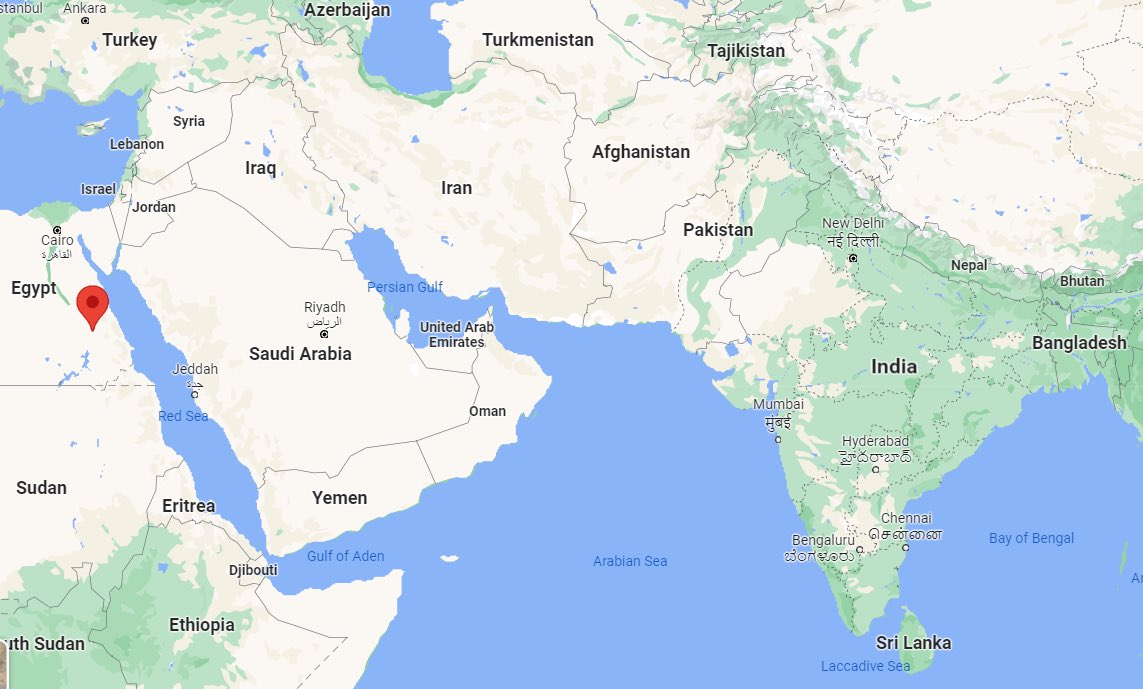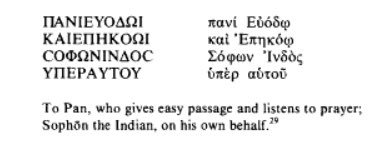
[THREAD]
India had a long trade and travel relation with Ptolemaic Egypt, a Greek kingdom in Egypt founded around 300 BCE. Inscriptions in temple ruins still carry Indian/Hindu names there. Image shows an estimate of Ptolemaic kingdom.
1/n
India had a long trade and travel relation with Ptolemaic Egypt, a Greek kingdom in Egypt founded around 300 BCE. Inscriptions in temple ruins still carry Indian/Hindu names there. Image shows an estimate of Ptolemaic kingdom.
1/n

This inscription is found in the temple of Seti I at Khanais that falls on the road between the cities of Edfu and Mersa Alam. See map for exact location of the temple ruins. Google maps don't record the exact location
2/n

2/n


This temple has lots of inscriptions in both Greek and Hieroglyphics. See the entrance to the temple and some of the inscriptions in the rock cut caves.
3/n


3/n



Rawlinson mentioned the Greek inscription in his book "Intercourse between India and the Western World" published in 1916. The inscription is mentioned in p. 99. See the Greek inscription and his initial estimate what it meant.
4/n

4/n


Once translated, that inscription says "To Pan, who gives easy passage and listens to prayer; Sophon the Indian, on his own behalf". German scholars Wilcken and Hultzsch translated the inscription.
5/n
5/n

Hultzsch estimates that the Hellenized name Sophon's original Hindu form may be the Sanskrit Subhanu. This interpretation is generally accepted. Pan was identified with Krishna, the god of flocks and herds, and played a rustic flute. He was an Egyptian trader of Indian origin.
6
6
Sophon/Subhanu was one of the earliest examples of NRI that is known in history. His inscription is a testament to the early Indian merchants and traders in ancient Egypt. Later even in 470 CE, Brahmans visited Alexandria and stayed with Consul Severus.
7/n
7/n

Last excerpt from the Vakataka-Gupta Age by RC Majumdar, p. 338
8/n
Tagging so that more people can get to read intriguing historical facts
@Aabhas24 @ruchirsharma_1 @TheJaggi @ShefVaidya
8/n
Tagging so that more people can get to read intriguing historical facts
@Aabhas24 @ruchirsharma_1 @TheJaggi @ShefVaidya
• • •
Missing some Tweet in this thread? You can try to
force a refresh








